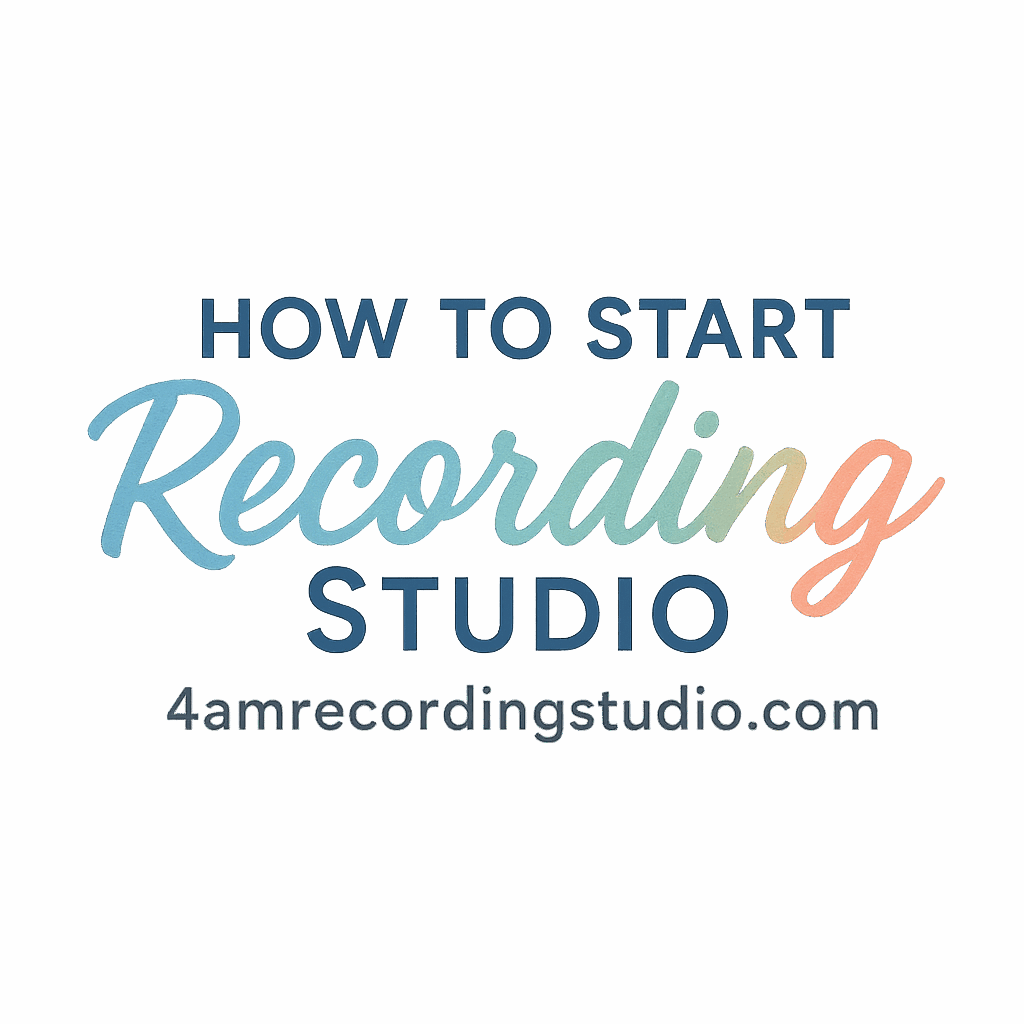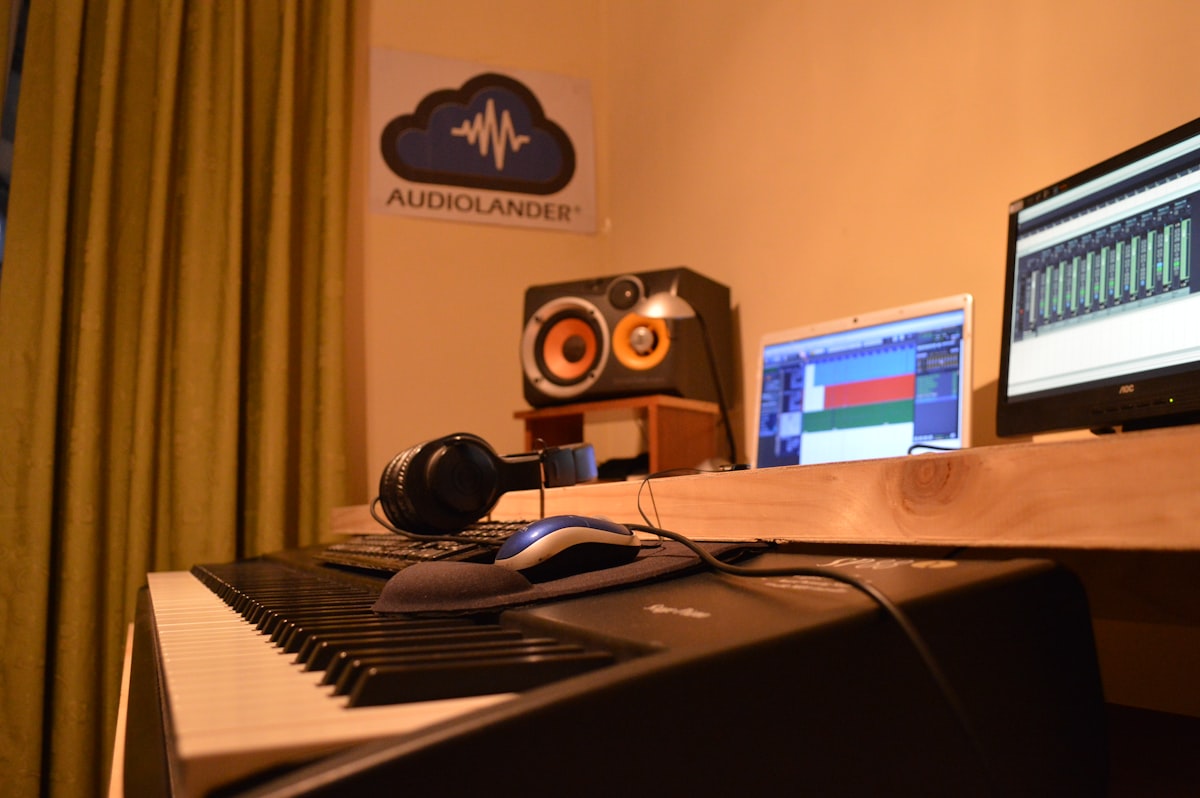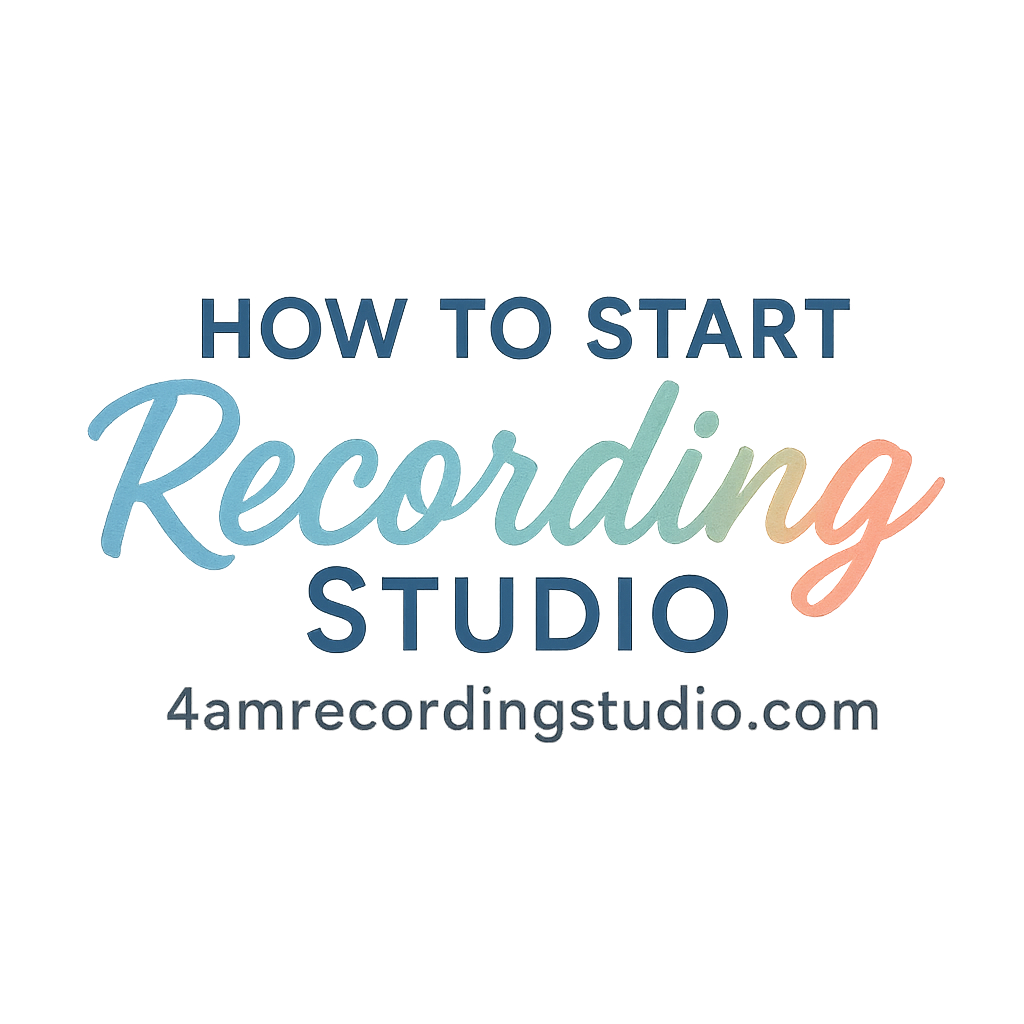Introduction
So you’ve got the gear, the skills, and a passion for music production. But the big question still looms: how exactly do you make money with a recording studio? Whether you’re just starting out or looking to restructure your studio business, choosing the right business model is key to long-term success.
In this guide, we’ll explore 6 profitable recording studio business models, diving deep into how they work, who they serve best, and how you can implement them. Whether you’re a beginner or an established studio owner looking to diversify your income, there’s something here for you.
Pro Tip: Bookmark this article for future reference. And check out 4am Recording Studio’s Planning Guide if you’re serious about turning your setup into a full-fledged business.
1. Project-Based Recording Studio
What is a Project-Based Model?
This is the traditional model most people associate with studios. You charge clients based on individual projects—whether it’s a single track, an EP, or a full-length album.
Pros and Cons
Pros:
- Clear start and end dates
- Flexibility in pricing per project
- Easier to manage schedules
Cons:
- Income can be inconsistent
- Heavily dependent on ongoing client acquisition
Ideal Clients for This Model
- Indie artists
- Podcasters
- Voice-over talent
- Bands recording an album
This model is best paired with strong word-of-mouth and a solid reputation. Check out our tips on studio management and growth to maintain client satisfaction.
2. Subscription-Based Recording Studio
How the Subscription Model Works
Imagine offering clients a monthly plan—say, 10 hours of studio time for $400 per month. This model creates recurring income while offering perks like discounted rates, priority booking, and exclusive features.
Pros and Challenges
Pros:
- Predictable revenue
- Builds client loyalty
- Easier to forecast income
Challenges:
- Requires consistent value delivery
- Can be hard to scale without good scheduling
Why Artists Love Subscriptions
Many artists are consistently recording content for social media, streaming platforms, or YouTube. A subscription lets them book without overthinking costs each time. For scheduling and organizing, use systems like those mentioned in our studio organization resources.
3. Mobile Recording Studio
Taking the Studio to the Client
This model flips the script—you bring your gear to the artist’s space, a venue, or even an Airbnb. You offer recording services on-location, perfect for convenience-loving clients.

Equipment and Setup Needs
You’ll need:
- Portable audio interface
- Condenser microphones
- Cables and mic stands
- Acoustic treatment (optional but helpful)
Find more gear recommendations in our equipment and tools guide.
Profit Margins and Challenges
This model reduces rent overhead but increases travel costs. Pricing should reflect your mobility and convenience factor.
4. Commercial Lease-Based Studio
Renting to Producers and Engineers
If you own or lease a studio space, you can rent it out to freelance producers, engineers, or artists who bring their own clients. It’s like an Airbnb for music makers.
Business Considerations and Contracts
Have clear agreements covering:
- Hourly or daily rates
- Damage clauses
- Gear usage policies
This model works well if you have top-tier gear and a desirable location. Read our guide to recording studio setup basics to get started.
Building Your Network of Renters
Tap into the music business scene in your city, and list your space on studio directories.
5. Hybrid Studio Model
Combining Services for Flexibility
Why choose just one? A hybrid model combines elements like project-based work, subscriptions, mobile services, and leasing. This approach increases your income streams.
Customizing Packages for Clients
Offer:
- Monthly subscription + occasional mobile sessions
- Studio rental + engineer services
- Custom beats + vocal tracking
Managing Time and Resources
Hybrid studios need tight scheduling. Use tools and templates from our business planning resources to stay on track.
6. Educational Studio Model
Teaching Music Production and Engineering
If you’re a seasoned engineer or producer, teaching can be incredibly rewarding. Run workshops or private coaching sessions right in your studio.
Creating Online Courses and Workshops
Platforms like Teachable or Kajabi allow you to create online versions of your lessons. This builds passive income while positioning you as an expert.
Building Authority and Passive Income
Pair education with content marketing. Share tips through a newsletter or blog to grow your audience and promote courses.
How to Choose the Right Business Model
Assessing Your Skills and Interests
Are you more of a mentor or a hands-on engineer? Do you prefer client work or content creation?
Understanding Local Demand
Survey your local scene. Are there many artists but few quality studios? Or is there a shortage of mobile services?
Aligning With Long-Term Goals
Think about scalability. Do you want a team in the future? Or keep things solo?
Tools and Equipment Needed for Each Model
Gear Essentials Based on Studio Type
- Mobile Studio: Portable interface, laptop, dynamic and condenser mics
- Leased Studio: Full monitoring system, acoustic treatment, furniture
- Education Model: Screen recording software, DAW templates, whiteboards
Choosing Quality Over Quantity
You don’t need every plugin on the planet. Stick with reliable, versatile gear. See our music gear tag for the latest suggestions.
Budgeting and Planning Your Studio Business
Estimating Costs and Revenue Streams
Start by calculating:
- Rent/mortgage
- Utilities
- Gear depreciation
- Marketing and insurance
Then map out potential revenue from each service.
Business Planning Resources
We’ve created a full guide on studio business planning to help you build a detailed roadmap.
Marketing Strategies for Each Studio Model
Branding and Online Presence
Create a compelling website. Use the right visuals and a clear message about your services.
Need help? Read our guide on marketing and branding.
Using Email and Newsletters
Stay in your clients’ minds with regular updates. Use tips from our email marketing strategies.
Social Proof and Client Testimonials
Ask happy clients for testimonials. Show before-and-after mixes, and share behind-the-scenes videos.
Growing and Scaling Your Studio
When to Expand Your Offerings
If you’re consistently booked, it might be time to add:
- Mixing/mastering packages
- Remote session options
- Collaborations with vocalists and producers
Streamlining Your Studio Workflow
Check out our tags on scheduling, collaboration, and time management to level up your productivity.
Conclusion
Choosing the right recording studio business model can mean the difference between a side hustle and a six-figure creative business. Whether you lean into education, subscriptions, project work, or a hybrid model, the key is to match your strengths with market demand and plan intentionally.
Ready to dive deeper? Explore our full archive of guides, tools, and tips over at 4am Recording Studio and transform your passion into profit.
FAQs
1. What’s the most profitable recording studio model?
It depends on your market and skills, but hybrid and subscription models often provide consistent income with room to scale.
2. How do I start a recording studio on a budget?
Start with essentials: an audio interface, DAW, mic, and headphones. Explore our setup basics guide for tips.
3. Is mobile recording a good business?
Absolutely! Especially in urban areas where clients appreciate convenience. Just make sure to charge accordingly for travel.
4. Can I run a studio business part-time?
Yes! Many successful engineers start as part-time freelancers before going full-time.
5. Do I need a commercial license to operate?
That depends on your city/state. Check local zoning laws and consider forming an LLC for legal protection.
6. How can I attract more studio clients?
Leverage SEO, social media, and newsletters. Also, read our marketing strategies to build your brand.
7. Should I teach music production online?
If you enjoy helping others, yes! Teaching builds authority, grows your network, and creates passive income streams.


